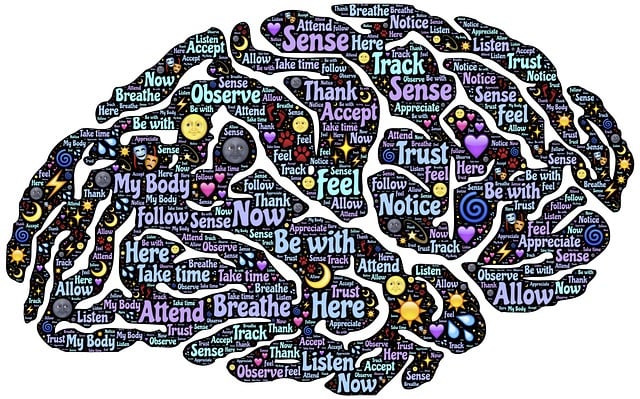Denver EMDR Certified Therapy is an innovative, effective approach to treating trauma and anxiety, offering specialized techniques for emotional healing. Integrated into crisis intervention team training programs, this methodology combines evidence-based practices with compassion, addressing acute crises and long-term mental wellness. Through comprehensive training, including Cultural Sensitivity and Stress Management Workshops, teams gain diverse skills for de-escalation, active listening, and emotional support. This holistic approach reduces stigma, fosters understanding, and cultivates community resilience, ultimately enhancing public safety and creating safer, more supportive environments.
Crisis intervention teams play a vital role in addressing mental health crises, especially in urban centers like Denver. This article explores the significance of these specialized units and delves into the unique approach of Denver’s EMDR-certified therapy. We examine key components of effective crisis training programs, highlighting their profound impact on communities. From real-life applications to continuous support systems, discover how these initiatives revolutionize mental health care, ensuring better outcomes for individuals in need.
- Understanding Crisis Intervention Teams: Role and Importance in Denver
- The Denver EMDR Certified Therapy Approach: A Unique Perspective
- Key Components of Effective Crisis Intervention Training Programs
- Benefits and Impact on Communities: Real-Life Applications
- Preparing for Challenges: Continuous Support and Resources for Team Members
Understanding Crisis Intervention Teams: Role and Importance in Denver

The Denver EMDR Certified Therapy Approach: A Unique Perspective

The Denver EMDR Certified Therapy Approach offers a unique perspective within crisis intervention team training programs. This innovative methodology integrates Eye Movement Desensitization and Reprocessing (EMDR) techniques, renowned for their effectiveness in treating post-traumatic stress disorder (PTSD), into mental health support. By combining this evidence-based practice with compassionate care, the Denver approach prioritizes both acute crisis resolution and long-term mental wellness.
This specialized training fosters a culture of understanding and resilience among intervention team members. It equips them to address not just the symptoms but also the underlying trauma that often contributes to mental illness. Moreover, by reducing the stigma associated with mental health issues through EMDR Certified Therapy, these programs aim to create safer, more supportive communities where individuals can navigate their mental wellness journeys openly and effectively. This holistic approach is further enhanced through collaborative practices and a commitment to ongoing education, ensuring teams stay at the forefront of evidence-based crisis intervention techniques.
Key Components of Effective Crisis Intervention Training Programs

Effective crisis intervention training programs are multifaceted, aiming to equip professionals with the skills to navigate intense situations with empathy and expertise. A key component is Denver EMDR Certified Therapy, which integrates eye movement desensitization and reprocessing techniques to help individuals process traumatic memories. This specialized approach enhances a therapist’s ability to facilitate healing during crises.
Beyond trauma-informed care, successful training programs emphasize Cultural Sensitivity in Mental Healthcare Practice. Understanding diverse cultural backgrounds and incorporating them into intervention strategies ensures inclusive and effective support for all clients. Additionally, these programs prioritize stress management techniques through Stress Management Workshops Organization, providing tools for professionals to manage their own well-being while assisting others in high-stress scenarios.
Benefits and Impact on Communities: Real-Life Applications

Crisis intervention team training programs play a pivotal role in fostering resilient communities. By equipping individuals with the skills to recognize and respond to mental health crises, these initiatives significantly enhance public safety and well-being. Participants gain expertise in de-escalation techniques, active listening, and emotional support, enabling them to provide immediate assistance to those in distress. This proactive approach not only reduces the burden on emergency services but also fosters a culture of compassion and understanding within communities.
In real-life scenarios, crisis intervention teams have proven effective in various settings. For instance, in Denver, EMDR (Eye Movement Desensitization and Reprocessing) certified therapy has been integrated into these programs, offering powerful tools for trauma healing. By promoting positive thinking and self-care practices, mindfulness meditation becomes an integral part of the training, empowering team members to support individuals navigating intense emotions. Such comprehensive training fosters a sense of community resilience, where bystanders become first responders, creating a safer and more supportive environment for everyone.
Preparing for Challenges: Continuous Support and Resources for Team Members

Preparing for challenges is a cornerstone of effective crisis intervention team training. Members face intense emotional situations and it’s crucial they have access to continuous support and resources to maintain their well-being. This includes peer supervision, where team members can debrief and process their experiences, ensuring they stay resilient and equipped to handle future crises. Additionally, integrating self-care routine development for better mental health is vital. Encouraging regular breaks, stress management techniques, and open communication fosters a supportive environment that strengthens the team’s collective ability to respond effectively.
Denver EMDR certified therapy plays a significant role in this process by offering specialized trauma healing methods. This approach, backed by robust Mental Health Policy Analysis and Advocacy, ensures teams are equipped to handle complex situations with empathy and professionalism. By prioritizing both the mental health awareness of team members and their access to continuous resources, crisis intervention efforts can reach new levels of effectiveness and sustainability.
Crisis intervention team training programs, particularly those emphasizing the Denver EMDR Certified Therapy approach, play a pivotal role in equipping professionals with the skills to navigate and de-escalate crises effectively. By focusing on key components like active listening, trauma-informed care, and collaborative problem-solving, these programs empower teams to provide immediate and impactful support in communities across Denver. The benefits are clear: enhanced community safety, improved mental health outcomes, and a stronger safety net for individuals in distress. Continuous support and access to resources ensure that team members remain resilient and equipped to face the challenges of supporting vulnerable populations.









